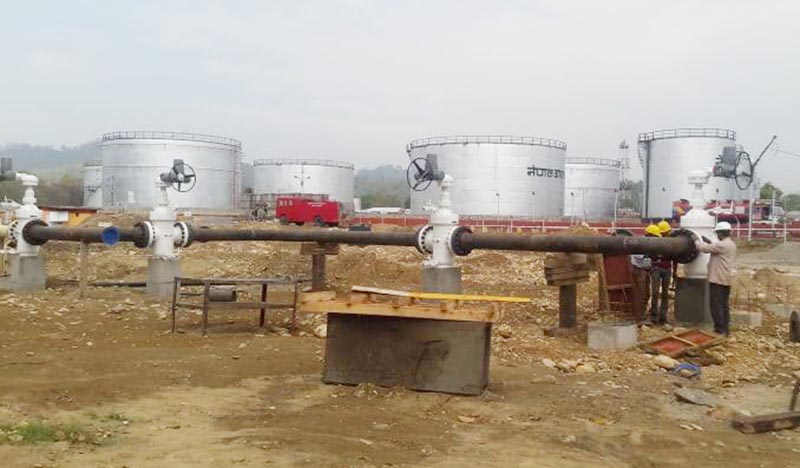NOC importing fuel on necessity basis as demand slumps
Kathmandu, April 5
The Motihari-Amlekhgunj oil pipeline is operating under capacity following the slump in fuel demand in the domestic market owing to the obstruction in vehicular movement and as most industries remain closed amidst the ongoing countrywide lockdown which is in force to prevent the spread of coronavirus (COVID-19).
Amid low storage capacity and significant drop in fuel demand in the market, NOC is obliged to cut fuel import and operate the fuel pipeline below capacity, informed Sushil Bhattarai, deputy managing director of the corporation.
NOC has been using the oil pipeline to supply only diesel. The pipeline has the capacity to supply up to six million litres of diesel per day while NOC had been importing up to five million litres of diesel via the pipeline per day so far. However, diesel import via the pipeline has been reduced to almost 150,000 litres per day amid the current unfavourable scenario, as per Bhattarai.
As per NOC, the demand for diesel in the domestic market has come down to less than 600,000 litres per day though the corporation had been importing up to six million litres of diesel per day during normal times.
Not only diesel, the import of petrol too has slumped dramatically. As per NOC, petrol is being imported on necessity basis and up to 200,000 litres is being imported per day at the moment. During normal times, NOC had been importing 1.6 million litres of petrol a day.
Following plummeting demand, NOC has also cancelled import of diesel and petrol from different other customs points and limited the import from Amlekhgunj and the pipeline only.
“Not only has the demand gone down in both Nepali and the international market, global oil producers have also stopped production as their storage capacity is full. In such a context, NOC is importing petrol and diesel on necessity basis and ensuring that available storage capacity of the government remains full all the time,” added Bhattarai.
Nepal has limited fuel storage capacity. While storage capacity for petrol is 9,000 kilolitres, the capacity for diesel is 45,000 kilolitres. “Had the country had huge storage capacity, we could have imported and stored the low-cost fuel,” as per Bhattarai.
The unprecedented collapse in oil demand in the global market has sent crude oil price crashing to 18-year lows. Moreover, international media have been reporting that the world could soon run out of space to store oil and help the price plunge to zero eventually.
A version of this article appears in e-paper on April 06, 2020 of The Himalayan Times.






